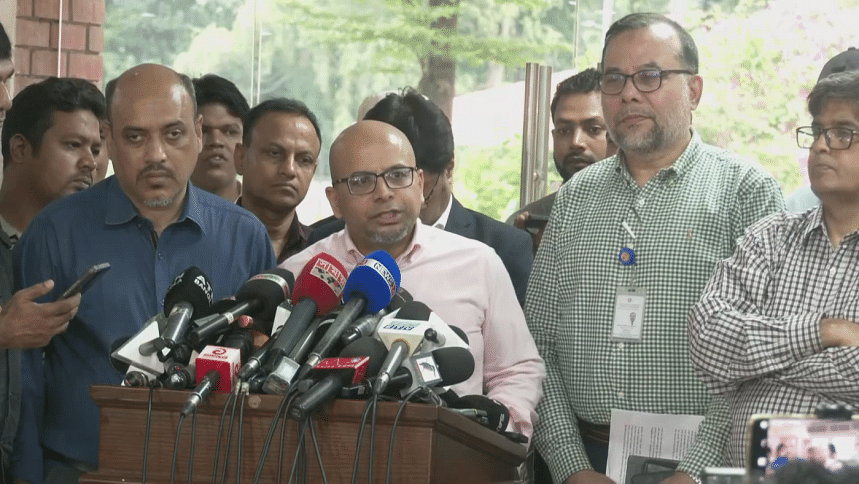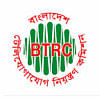New telecom policy aims to end syndicates, boost 5G, cheaper internet

Bangladesh's telecom system, long criticised for inefficiency and corruption, is undergoing a major overhaul under the proposed 'Telecom Network and Licensing Reform Policy 2025'.
At a speech delivered on July 7, Faiz Ahmad Taiyeb, Special Assistant to the Chief Adviser at the Ministry of Posts, Telecommunication and Information Technology, laid out a roadmap for dismantling syndicate control, reducing consumer costs, and modernising digital infrastructure in line with international standards.
Moving past "the worst internet in the world"
"Our internet has been described as the worst in the world," said Taiyeb, referring to a May 2 conference hosted by the Bangladesh Telecommunication Regulatory Commission (BTRC).
"Since then, some vested interests and media circles connected to the communication mafia have launched attacks on us. But we remain committed to reform," he added.
To tackle this, the new licensing framework seeks to align with international standards set by bodies such as the International Telecommunication Union (ITU) and GSMA. The government intends to phase out outdated licenses and introduce a "world-class structure" designed to last 10 to 12 years, as per Faiz Taiyeb.
"We aim to discard licensing tiers like ICX and NIX which no longer exist anywhere else in the world," Faiz Taiyeb added.
Cracking down on rent-seeking licences
Taiyeb criticised the proliferation of toll-based operators issued under the 2010 International Long Distance Telecommunication Services (ILDTS) policy, calling them "toll collectors" who add little to no value to the telecom ecosystem.
"By 2024, BTRC had issued 3,573 licences across 29 categories, many of them to Awami League-aligned individuals. Entities like ICX (Interconnection exchange), IGW (International Gateway), IOF (International Origination Function), NIX (National Internet Exchange) and IIG (International Internet Gateway) have siphoned hundreds of crores with minimal infrastructure investment," Faiz Taiyeb said, citing figures like BDT 631 crore in Market Development Fees (MDS) 95% of which routed through Beximco Computers and a total estimated embezzlement of BDT 8,000 crore through IOF over nine years.
"Mobile operators are facing losses of BDT 19 crore per month, ICX BDT 16 crore, and BTRC BDT 47 crore per month due to the IGW/IOF syndicate," Faiz Taiyeb added.
Restructuring the licence landscape
The new policy would put internet service providers (ISPs) under a lighter regulatory system. "We initially wanted to fully deregulate ISPs," said Taiyeb, "but they themselves requested licensing in order to secure loans. That is why they do not want to be fully deregulated."
There will also be limits on how much foreign companies can own. "Foreign investors can hold up to 49% in the international layer and up to 55–60% in the national layer. Even for the two 100% foreign-owned operators, we're imposing an 80% ceiling," he said.
The government will eliminate licence renewals for ICX and IGW after 2027. "Because of the ICX phase 5 paisa per call minute charge is added. We will request MNOs (Mobile Network Operators) to reflect this cost reduction in their rates," he said.
The reform intends to reduce the number of network layers from six or seven to three, and along with a reduction in taxes, this is expected to lower internet costs for consumers.
Taiyeb also criticised a 2010 policy that banned mobile operators from deploying their own fibre infrastructure and instead handed exclusive control to two NTTN (Nationwide Telecommunication Transmission Network) companies.
"The BDT 2100 crore Info Sarkar III project was effectively privatised by two individuals. This dual monopoly is coming to an end," Faiz Taiyeb stated.
Under the new framework, the monopoly will be dismantled, and state-owned enterprises like BTCL, Railway, and PGCB will be allowed to expand freely, according to Faiz Taiyeb.
Breaking up cartels and recovering dues
Taiyeb detailed how the IGW Operators Forum (IOF), formed in 2013 under Salman F. Rahman's leadership, monopolised international call termination and under-reported revenue.
"Mobile operators were banned from bringing in direct international calls, while IOFs were reporting revenue of $0.006 even though they terminated calls at $0.03 per minute. By 2024, the actual termination rate had dropped to $0.001, but IOFs were still reporting $0.0004 per minute," he added.
"This gap has caused the government to lose more than BDT 8,000 crore in revenue in the last 12 years. This huge amount of revenue loss has all gone into the pockets of Salman F. Rahman Gang," Faiz Taiyeb said.
BTRC is imposing 4 restrictions on defaulters - banning share transfers, ownership changes, licence renewals, and name changes. Relief will be granted only upon payment of 50% of dues and a notarised commitment to pay the rest within a year.
Planning for 5G and future internet growth
Taiyeb also projected internet usage to reach 80 Tbps in ten years, possibly 200 Tbps in high-growth scenarios. He warned against relying on narrow baseline figures of 7–8 Tbps, noting that internal caching and inter-cluster bandwidth must be factored into future infrastructure planning.
"Due to the millisecond (1000th of a second) level latency in 5G services, you can find mission critical usage, such as robotic surgery, driverless vehicles, port management, IoT, etc. as suitable areas for various innovations. Therefore, the more innovative we become in 5G services, the more its usage will increase," Faiz Taiyeb said.
A push for accountability
Taiyeb also responded to media reports that claimed the government tried to stop an anti corruption commission (ACC) investigation.
"Recently, a newspaper published a report that an attempt was made to stop the ACC investigation by issuing a DO Letter. This is not true at all. The DO Letter was basically a request for the ACC's sincere cooperation," Faiz Taiyeb clarified in his speech.
As part of the reforms, the government is preparing a new Telecom Policy, an updated Telecom Act, and clear service quality rules. Two White Paper Committees - one for telecom and another for ICT - will gather complaints and report any irregularities.
"BTRC, irregularities including appointments and transfers in Telecom can be informed to the Telecom White Paper. Similarly, any irregularities in the ICT Division or its projects started during the previous government can also be reported to the ICT White Paper Committee," Faiz Taiyeb said.

 For all latest news, follow The Daily Star's Google News channel.
For all latest news, follow The Daily Star's Google News channel. 







Comments